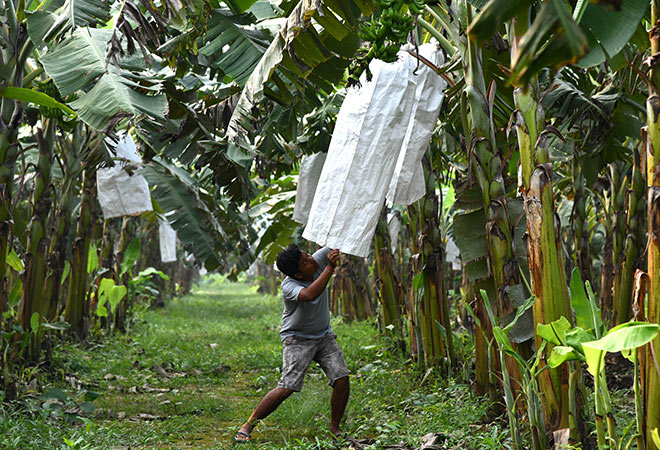
This article is part of the series — India–Bangladesh Relations @50: Commemorating Bilateral Ties.
In India, the framing of foreign policy is a role of the Union government and the states were at an arm’s length in the arena. However, in recent years, there has been a change. States are often consulted and encouraged to take a more active role. The trend is more visible in the case of the states that have international boundaries. The border states are considered to be an important factor, especially, in the context of the importance accorded to India’s neighbourhood policy. Even the vaccine provision by India to its neighbours has been a demonstration of India’s commitment to the cause.
One of the most important areas for this ‘Neighbourhood First’ policy is the framing of India’s policies with Bangladesh, the country with which India shares its longest border running through five states — West Bengal, Assam, Meghalaya, Mizoram, and Tripura. Ever since 2011, this sustained engagement and the consultations between the two countries have increased, although India and Bangladesh failed to conclude the water sharing agreement of the Teesta river, despite the positive approach of the Indian Union government. The Teesta Agreement that was proposed to be signed during former Indian Prime Minister Dr Manmohan Singh’s visit to Bangladesh in 2011 had to be postponed due to West Bengal Chief Minister Mamata Banerjee’s objection to the draft agreement.
The border states are considered to be an important factor, especially, in the context of the importance accorded to India’s neighbourhood policy.
India’s policies with respect to Bangladesh have also been shaped by its domestic political dynamics and the necessities of the bordering states. Issues in Assam have been a key factor in this regard. As the largest state in the Northeast Region (NER) of India, Assam shares nearly 263 kilometres of the border (land and riverine) with Bangladesh. Given the size, population, and location, Assam’s participation in trade and commerce with Bangladesh is important for the Indian government. The state had witnessed a fall from its prosperity of pre-Independence days due to many factors but primarily due to political unrest and insurgency-fuelled violence ning decades. Much of that unrest was caused due to the illegal immigration from Bangladesh and also because many of the NER-based militant groups from India found safe harbour on Bangladeshi soil. However, the Sheikh Hasina-led government has been very prompt to pay heed to India’s concerns around Assam and has sent back all the top leaders of United Liberation Front of Asom (ULFA) and other extremist groups to India. It has also been very assertive in dismantling the presence of such groups in Bangladesh. This was not only encouraging, but a game changer, as the moves showed the Bangladeshi government’s role in respecting the people of Assam who helped Bangladeshi citizens during the Liberation War of 1971. The legendary cultural icon from Assam, Bhupen Hazarika, had played a stellar role in inspiring the people through his songs during this struggle.
The strong actions taken by the Bangladesh government since 2009, when Sheikh Hasina came to power, against anti-India forces and to also send the militants back to Assam has fostered a positive bilateral relationship based on strong cultural ties and has enhanced economic cooperation. The Union government motivated the Assam government to also pursue a course of healthy engagement with the Bangladeshi government. The stakeholders meet in Guwahati in 2019 was a clear indicator of such an approach that resulted in some meaningful business conversations. The Assam government also reoriented their focus towards more economic engagements, taking advantage of the Act East policy. Border trade focused at various levels have been studied to steadily explore and start specific economic ventures. The setting up of the Bangladesh mission in Guwahati also helped to push the case. With the opening of the Chittagong port for transshipment of goods for Indian states, particularly the NER, the actual potential was further realised, deepening the friendship and helping many parts of Assam to receive goods easily and on time.
The Assam government also reoriented their focus towards more economic engagements, taking advantage of the Act East policy.
A large part of the informal trade that happens between both the countries through Assam and Tripura can be formalised in a structured and a time-bound manner. Further, Assam can benefit from the economic growth of Bangladesh and can be a worthy supplier for the industries in Bangladesh, particularly the textiles and silk industry. Also, areas like fisheries and agriculture could get a newer and a more stable market.
A close relationship with Bangladesh will also help to promote tourism. Apart from the economic benefits, close ties with Bangladesh will also help to strengthen the management of rivers and to deal with climate change, in which Bangladesh has achieved some research expertise.
In the golden jubilee year of the India–Bangladesh relationship, attempts need to be made to streamline the policies that will help realise this potential to its fullest.
The fact remains that bilateral ties and engagements between India and Bangladesh help in exploring many new windows of possibilities for Assam, ranging from trade and commerce to culture and tourism. In the golden jubilee year of the India–Bangladesh relationship, attempts need to be made to streamline the policies that will help realise this potential to its fullest. The Act East Policy gives the right policy approach, and steady implementation will help in its optimal realisation.
The recent moves in Assam to implement the National Register of Citizens (NRC) did lead to a feeling of uneasiness in the bilateral relationship between the two countries. However, the Indian government reassured Bangladesh that it would not be impacted. The steadily maturing relationship over the years made it easier for both countries to comprehend the complex situation.
The views expressed above belong to the author(s). ORF research and analyses now available on Telegram! Click here to access our curated content — blogs, longforms and interviews.




 PREV
PREV


